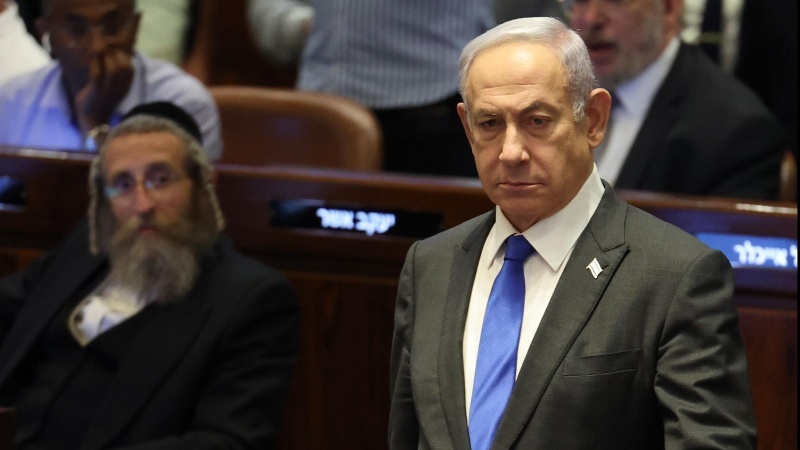A few days have passed since the anniversary of October 7. Some media try to evaluate the winner or loser of the war. Apparently, some of the tactical moves such as devastation of various places, explosion of pagers, assassination of some of the commanders and political figures, may have caused the mentality that the fake Zionist regime has gained more achievements.
Asghar Zabarjadi, analyst of international issues, has rejected this claim in his editorial for daily Jam-e Jam. He has touched upon the strategic defeats of Israel in the Gaza war. Let us review some of the important points of his editorial here:
The first strategy is to feign victory. Some thinkers have called the modern world as the world of media inducing. The truth or falsehood do not matter in a war in which the winner is the country with high ability to induce. It is rather the power to affect public opinion. The Zionist regime, thanks to the vast Western media empire and ostentation of innocence, advanced its sinister plots for a while since the beginning of the Gaza war to the extent that it portrayed itself as the victor and rightful side of an unfair battle. But, the regime's bestial crimes and unprecedented savagery reached the extent that even the extremist media supporting it reduced their support for the fear of losing their status as media sources. Thus, in practice, the propaganda turned against the regime and today, the Zionist regime is in the worst situation among the world public opinion.
The second strategy is to omit the leaders of the resistance network. When confronting the networks of protesters and armed groups, omission of their leaders will undermine or destroy them. But, this is a very wrong option to deal with the resistance front. Resistance not only enjoys a high spiritual, value-oriented, national and international motive, but also it has turned into a robust establishment during the recent years and decades. As an example, mention can be made of the fabricated Zionist regime's failure to completely destroy Hamas and its leaders and commanders in various levels. This strategy has practically failed, especially for the past year and has caused regeneration of new leaders.
The third strategy is to create a barrier region in the areas around the Occupied Territories. To make a distance and evacuating of the resistance forces, physically and territorially, is a wrong perception about resistance. Creation of distance in a territory which does not belong to the occupier means to play in the court of resistance.
The fourth strategy is to expand the crisis to the region and the world to make others partners in the war expenses. This decision is a tactic rather than a strategy! Countries may come short in order to prevent crisis, but undoubtedly, it will turn into their vital and strategic issue and they will have no choice except taking action to solve it radically. The unoriginal and artificial peace methods have so far been rejected in the region and it seems that this strategy will result in the consensus of all regional countries to wipe out the regime from the region.
The fifth strategy of the fake regime is to put the people on the opposite side of the resistance through forging different dualities. The Zionist regime is trying to introduce the resistance as the cause of unrest, chaos, insecurity and destruction in the region in a bid to tarnish its image among the public. The regime has neglected the fact that people are far more aware of the events in comparison with the past and they exactly know that the source of every crisis in the region is the cancerous and unholy tumor and the illegitimate brat called "Israel". Choosing this strategy has led to formation of popular currents in the region and the world against the Israeli regime. These currents are being formed with such a speed that they have caused deep concern among some of the Arab rulers over serious civil protests in their countries due to their passivity and silence towards Palestine.
The sixth strategy
is to spread the war. The child-killer regime certainly knows that it
lacks any strategic depth, whereas the resistance front is vast and
enjoys strategic depth from Iran to Yemen and even beyond. Therefore,
relying on its air force, the fabricated regime tries to launch tactical
operations with limited effects. Yet, it knows quite well that the main
battle is on the ground and it is excessively scared of the battle on
the ground. A variety of clashes in different fronts against the
resistance, has worn out the regime politically and in terms of
intelligence and arms.
/129

